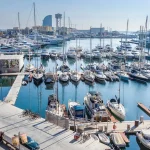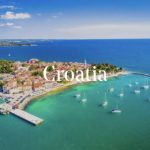Source: HRT Photo: HUPB
International Marine and Coastal Cleanup Day is also celebrated in Croatia. Its goal is to raise awareness about marine litter and encourage volunteers to clean beaches.
A global volunteer initiative, primarily organized by the Ocean Conservancy, collects data on types and sources of waste, informs policy and industry changes aimed at reducing marine pollution. The Ocean Conservancy is a non-profit environmental organization working to create a healthy future for the oceans and protect marine ecosystems from challenges such as pollution and climate change.
Sanja Radović, Head of the Sector for Sustainable Waste Management at the Ministry of Environmental Protection and Green Transition, spoke on the show “Dobro jutro, Hrvatska” about cleaning the sea and coasts. When asked how polluted the Adriatic is, Radović said that the situation is not that alarming.
– We have witnessed in the past few years that we have had entire islands of waste coming from other countries. So the Adriatic is actually more endangered than we would like it to be. Not only because of our inactions, or bad actions, but we also have the consequences of such actions in other countries.



She touched on plastic and its harmful effects on the marine world.
– I wouldn’t say that plastic caused the damage, but our behavior. That is, the behavior of all people, which is extremely irresponsible. The production of plastic is not that environmentally harmful. Plastic in products is very useful. But what we do with these products and waste plastic later – that is the problem. That’s when a big problem arises. Plastic should be used as much as possible. If we’re going to throw it away, then we should throw it away properly, she added.
Volunteers, individuals and organizations around the world participate in International Coastal Cleanup Day by removing litter from beaches and taking care of the environment. They document the waste collected, which helps identify common items such as cigarette butts, plastic wrap and bottles. This data is collected and used to influence industries and advocate for regulations against illegal dumping and the production of harmful products.


More plastic than fish
Plastic makes up between 80 and 85 percent of the waste found in the sea and on the coast. It is estimated that the damage to the marine environment globally is at least eight billion USD per year. The Union for the Mediterranean, an organization that brings together 43 countries, has warned that in 25 years there could be more plastic than fish in the Mediterranean Sea if waste management is not radically improved.
The goal of International Marine and Coastal Cleanup Day is to reduce waste, especially single-use plastics. The increasing presence of plastic in seas and rivers and the damage it causes to marine and river ecosystems, kills hundreds and thousands of birds and marine animals, and has a negative impact on human health.






